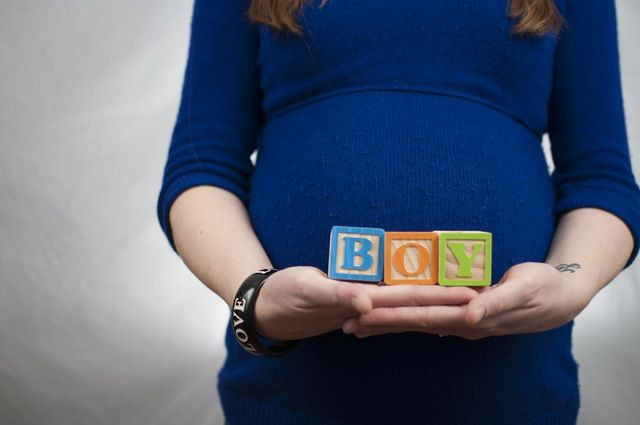Pregnant Women Carrying A Boy May Be At Risk For Preterm Birth, Other Complications Compared To Girls

It may be a man’s world (for now, at least), but in the womb it seems that being female may actually give you the upper hand in life. A new study has confirmed that boy babies are much more likely to experience potentially life-threatening outcomes during their mother’s pregnancies than girl babies. Although the difference isn’t enough to cause mothers expecting boys too much concern, the findings do suggest that maternity healthcare can benefit by catering to a mother’s needs based on the sex of her child.
For the study, researchers from the University of Adelaide in Australia, in partnership with the University of Groningen in The Netherlands and the Pregnancy Outcome Unit of SA Health, investigated data covering more than 574,000 births in South Australia from 1981-2011. The team was specifically looking at the relationship between the baby's sex and adverse outcomes for both baby and mother.
Results revealed a strong inclination towards adverse birth outcomes in women who were carrying male babies. For example, according to the study, boys are more likely to be born spontaneously preterm. They also have a 27 percent higher risk for preterm birth between 20-24 weeks gestation; 24 percent higher risk for preterm between 30-33 weeks; and 17 percent higher risk for preterm birth between 34-36 weeks.
Preterm birth is used to describe the birth of a child any time before 37 weeks (with the average pregnancy lasting 40 weeks) and, according to the Centers for Disease Control and Prevention, it is the leading cause of long-term neurological disabilities in children.
In addition to preterm birth, mothers carrying boy babies were 4 percent more likely to suffer from gestational diabetes, and 7.5 percent more likely to suffer from preeclampsia at term. Preeclampsia is a serious pregnancy complication characterized by extremely high blood pressure. According to the Mayo Clinic, if left untreated it can be fatal for both mother and child.
Past research has also suggested that female babies are less likely to have a preterm birth, stillbirth, neonatal death, or macrosomia — a baby that weighs more than 8 pounds, 13 ounces at birth.
"The major conclusion of our study is that the evidence is there and it is very clear: the sex of the baby has a direct association with pregnancy outcomes," said lead author Dr Petra Verburg in a recent statement.
Although it's still not entirely clear why a baby's gender has such a significant impact on pregnancy outcomes, senior author Claire Roberts suggests that it may have to do with how male and female fetuses affect the placenta. A 2014 study, also led by Roberts, suggested a similar theory after finding that genes produced by the placenta differ depending on the baby’s gender.
According to the research, when mothers carry female babies, there is a higher expression of genes involved in placental development, the maintenance of pregnancy, and the maternal immune tolerance compared to when mothers carry male babies. In addition to different gene expression, male babies also grow faster and bigger than females, in both the human and animal world, which also may affect birth results.
This research suggests fetal sex should be taken into account in further studies on obstetric complications. The team hopes that identifying the mechanisms behind different pregnancy outcomes for male and female babies, whether they’re from genetic causes or other reasons, could lead to tailored care during pregnancy, as well as infant and later childhood care.
Source: Verburg PE, Tucker G, Schiel W, et al. Sexual Dimorphism in Adverse Pregnancy Outcomes - A Retrospective Australian Population Study 1981-2011. PLOS ONE. 2016



























